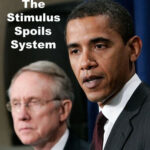By Alyssa A. Lappen
FrontPageMagazine.com | November 17, 2005
The Middle East is changing faster than anyone could have imagined, Iraqis have voted for a constitution, popular protests have help push Syria out of Lebanon, and elections in Egypt have exposed just how fragile the Mubarak regime is. But academic specialists on that region remain stuck in the past.
Their obsolete and petty obsessions will be on full display when the Middle East Studies Association holds its annual meeting from November 19 to 22 at the Wardman Park Marriott in Washington D.C. The coronation of Juan Cole as MESA’s new president will, for example, make the organization’s public face a leading proponent of the theory that the Zionist-Likud cabal controls American foreign policy for the benefit of Israel.
Indeed, MESA’s members display a disproportionate interest in Israel. Nearly 9 percent of the program-14 sessions-is devoted to something called “Israel/Palestine” and Israel, as usual, is routinely equated with South Africa. Thus, a panel titled “Palestine and South Africa: A Fruitful or Futile Comparison” will feature Haifa University’s notorious Ilan Pappe as the key discussant. A double session on “Middle Eastern Refugees: Global and Local Perspectives” will focus on Palestinian refugees. Jewish refugees from Arab countries number nearly 1 million but they seem not to count when MESA is deliberating.
As this suggests, the conference presents the Palestinian narrative, and does so often. Sessions with titles like “Palestinian National Identity and Resistance in the 20th Century: Textual Approaches” and, “Palestinian and Israeli Narratives of Nonviolent Resistance” adopt and legitimize the jargon of the Palestine Liberation Organization. Christa Bruhn, a “Diversity and Development Planner” at the University of Wisconsin-Madison, goes further; she will explore a world without Israel in a thematic conversation titled “Bi-national or Federal Option in Palestine-Israel: Prospects and Feasibility.”
Anti-American dogma is also a ritualistic part of MESA’s meetings. The Iraqi “occupation” takes center stage here. A session on “The Occupation of Iraq and Socio-economic Change in the Middle East” covers the “unsettling” effects of this alleged occupation on Syria; but no session deals with the more vital issue of socio-economic redevelopment in Iraq. And MESA’s specialists seem uninterested in the Syrian role in disrupting Iraq’s reconstruction, much less the Assad regime’s “occupation” of Syria itself.
In place of a serious discussion of terrorism, one paper complains about “The Terrifying War on Terrorism.”
The conference casually legitimizes terrorist groups and their sympathizers; it even includes at least one individual implicated in terrorism. Mona Harb extolls “Hizballah’s Institutions: An Alternative Policy Network in Post-War Lebanon.” Mohamed A. Nimer from the Council on Islamic-American Relations (CAIR), whose staff are known as “friends of terror,” will participate. Nimer was alleged by plaintiffs in Estate of John P. O’Neill, Sr., et al. v. Al Baraka, et al. to be one of CAIR’s “proven links to Islamic Terrorists.”
MESA’s subject matter sometimes borders on the incomprehensible. Who knows what will be discussed in “Problematizing ‘Women’s Place’ in the Multiple Borderzones of Gender and Ethnic Politics in Turkey”?
But a helpful session, “The New Kid on Campus: Balancing Teaching and Community/Media Work as First Hires in Middle East Studies,” will teach young faculty how to remain “political engaged” without suffering the “virulence, violence, and malice present in public ‘assessment’ of Middle East scholars,” presumably Campus Watch and other critics of politicized classrooms and other forms of “political engagement.”
Conference organizers signal their outlook also by what they do not include. “Contesting Demographic Implications of Slavery across the Sahara and North Africa: Slavery and Cultural Changes” covers many aspects of Islamic slavery but the descriptions suggest there will be nary a word concerning the current crisis of slavery and genocide in Sudan. Many papers deal with Iranian politics, religion and society, but none focuses on Iran’s nuclear weapons program.
Martin Kramer has dared to hope that MESA will regenerate itself into an intellectually diverse society of true scholars but MESA members continue to stand aloof from the major new issues in the Middle East, such as opportunities presented by the growing cracks in autocratic regimes and the threats to the West from Iran and Islamist terrorism. Instead, they denigrate American involvement in the region and rail against Washington’s leading ally there.
Alyssa A. Lappen wrote this for Campus Watch, a project of the Middle East Forum designed to critique Middle East Studies at North American. universities with a view to improving them.
All Articles, Poems & Commentaries Copyright © 1971-2021 Alyssa A. Lappen
All Rights Reserved.
Printing is allowed for personal use only | Commercial usage (For Profit) is a copyright violation and written permission must be granted first.






